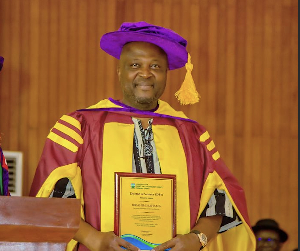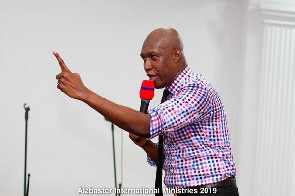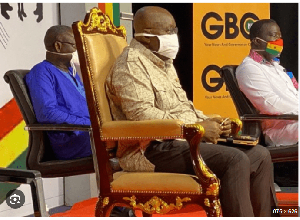Tema, July 11, GNA - Togbe Afede XIV, Agbogbomefia of Ho Asogli State, the brain behind the Sunon Asogli Power Plant project, an Independent Power Plant (IPP), has said the Shenzhen Energy Group from China had followed due processes to acquire the required licence. Togbe Afede said even though the company is yet to receive operational license from the Energy Commission and the Environmental Protection Agency
(EPA) it had to start the project in order to meet the deadline. The project would utilize natural gas from the West African Gas Pipe
Line from Nigeria to produce 560 megawatts electricity of which 200 megawatts
would be produced by the end of the year upon the completion of the first phase. The chief, who was reacting to concerns raised by the Energy
Commission on the commencement of the project without acquiring licences, said
the process of getting a land title, which is one of the requirements of the Energy
Commission and the EPA, takes about one year and this would delay the project. The Energy Commission on Wednesday said five IPPs under
construction in the Tema metropolis were yet to submit their land title documents to
the commission to enable them acquire their operational licences. The plants are the Sunon Asogli Power Plant, Volta River Authority
(VRA) Plant, Kpone Power Plant, Mining Reserve Plant and Tema Osorno Plant. Togbe Afede said even though he is a strategic investor, he is yet to
benefit from tax exemptions as stipulated by the Ghana Investment Promotion
Centre (GIPC) due to the delay in the processes. He said the Ministry of Finance and Economic Planning as well as the
Ministry of Energy had given his outfit permission to clear two containers of heavy
duty equipment and thermals expected to arrive in the country early next month. Togbe Afede said 50 percent of the first phase of the project that cost
160 million dollars had been completed and that about 80 percent of the workforce
is local people who receive training from the Chinese experts working on the
project. He said it was the wish of the company to help Ghana to get enough
energy that would enable the country to export energy to other African countries.
Business News of Friday, 11 July 2008
Source: GNA












